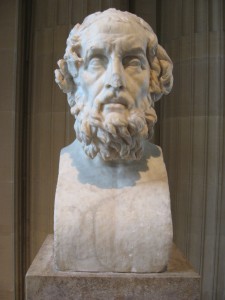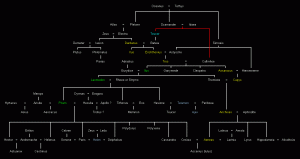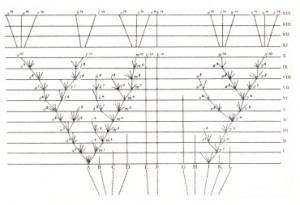![]()
Algunas características de la épica ilustradas con ejemplos
- Abundancia de Epítetos, metáforas y comparaciones
Atenea, la de ojos de lechuza
Aquiles, el de los pies ligeros
El anciano Néstor
Natural Selection, as we shall hereafter see, is a power incessantly ready for action
2. Prosopopeya, personificación:
Zeus que ordena las nubes
Organs, originally formed by the aid of natural selection, when rendered useless may well be variable, for their variations can no longer be checked by natural selection.
…so in a state of nature natural selection will be enabled to act on and modify organic beings at any age, by the accumulation of variations profitable at that age, and by their inheritance at a corresponding age……….
3. Exaltación de la lucha:
As the individuals of the same species come in all respects into the closest competition with each other, the struggle will generally be most severe between them; it will be almost equally severe between the varieties of the same species, and next in severity between the species of the same genus.
The store of nutriment laid up within the seeds of many plants seems at first sight to have no sort of relation to other plants. But from the strong growth of young plants produced from such seeds, as peas and beans, when sown in the midst of long grass, it may be suspected that the chief use of the nutriment in the seed is to favour the growth of the seedlings, whilst struggling with other plants growing vigorously all around.
4. La Figura del héroe: El superviviente único
Ulises, que sobrevivió los diez años que duró la guerra de Troya y otros diez que transcurrieron desde el fin de la guerra hasta su llegada a Ítaca.
This preservation of favourable individual differences and variations, and the destruction of those which are injurious, I have called Natural Selection, or the Survival of the Fittest. Variations neither useful nor injurious would not be affected by natural selection, and would be left either a fluctuating element, as perhaps we see in certain polymorphic species, or would ultimately become fixed, owing to the nature of the organism and the nature of the conditions.
5. Los orígenes: El superviviente único procede de un árbol filogenético.
Y no se olviden del caballo, que en el Origen de las Especies aparece 77 veces y de la espada que también aparece.
Con mi agradecimiento a Guillermo Pérez Galicia por ayudarme a entender El Origen de las Especies.




